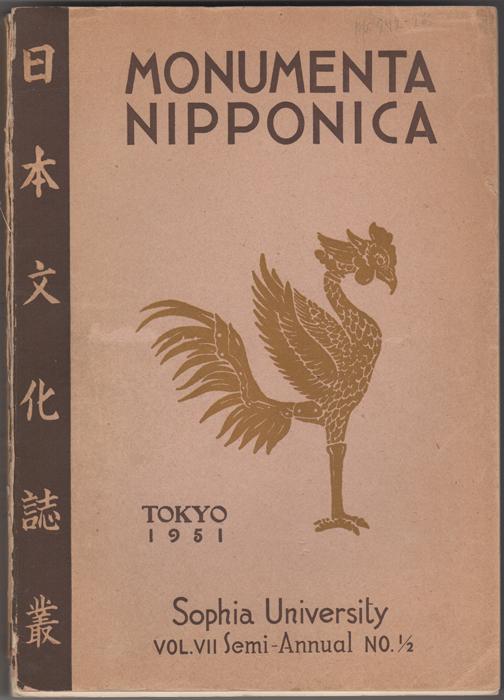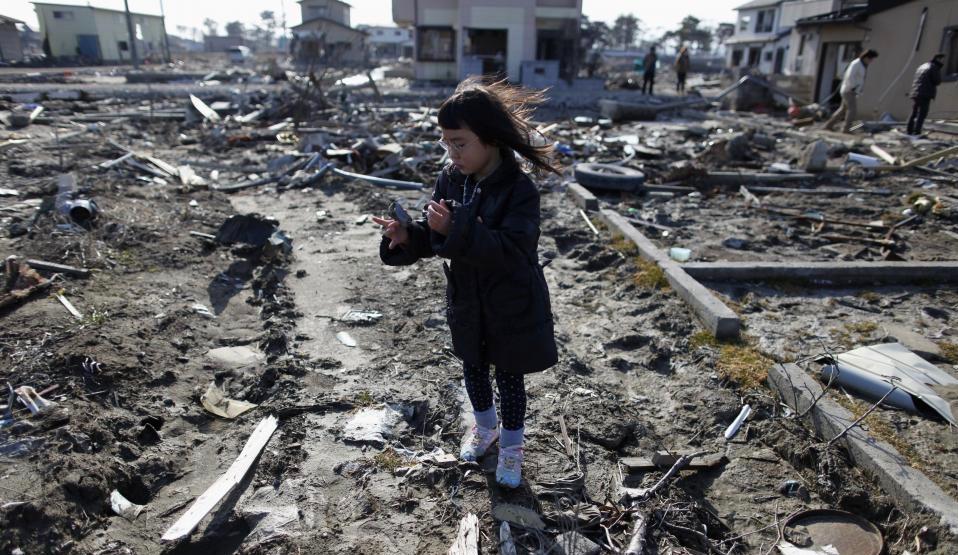Area-based Global Studies in Japan
archive


Dondon Sushi, Copenhagen, Denmark. Global Japanese Cuisine Project, Sophia University.
Area-based Global Studies in Japan
The emergence of global studies (GS) as an academic field in the late twentieth century was initially met with skepticism by many area studies (AS) scholars. They saw “globalization,” the master concept of GS, as an homogenizing and universalizing assumption that denied the raison de’etre of AS, namely identifying and explaining the particularities of cultures and societies. Additionally, they saw GS as competing for scarce resources in a similar academic niche of multidisciplinary and interdisciplinary study of the world.
In the 2000s, antagonism between AS and GS gave way to creative tension between the concepts of “area” and “global.” Area specialists have increasingly found globalization a helpful framework for understanding the societies and cultures they study. Scholars of globalization have become increasingly aware that global processes are manifested differently in specific locales. Consequently, an increasing number of scholars see their inquiry as both “area” and “global,”1 an identification reflected in new institutions and programs.2
This essay reflexively examines the intellectual and institutional interplay of area and global in the Graduate Program in Global Studies (GPGS) at Sophia University. Founded in 2006 to replace an AS program, it is among the earliest and largest GS programs in Asia. Its multidisciplinary scholars from a dozen disciplines are committed to an idea of “area-based global studies.” It first examines how this idea is embodied in the GPGS and then considers how the origins of the GPGS can be analyzed as an interplay of area and global.
Area-based Global Studies in the GPGS
The interplay of the concepts of area and global in the GPGS is seen in two projects that involve multidisciplinary teams of faculty and students investigating interdisciplinary topics. One is Voices from Tohoku: Digital Archive of Disaster, Recovery and Mobilization that has conducted hundreds of interviews with survivors of the 2011 disaster in Japan. The other is Global Japanese Cuisine, which examines the global boom in Japanese cuisine that became apparent in the late twentieth century.
Both projects relate “area” specificities of Japanese culture, place, and history to “global” concepts of transnationalism, universalism, and glocalism. Voices from Tohoku considers the plight of Japanese nationals in Japan as an instance of such globally relevant issues as refugees and disaster recovery. Global Japanese Cuisine examines the conveyance of Japanese culture around the world by mostly non-Japanese actors, using such GS concepts as deterritorialization, transnational mobility, and global hierarchies for analysis and explanation. In other words, one project treats a phenomenon in Japan as globally relevant, while the other treats Japanese culture as a globalizing phenomenon.
Transdisciplinarity is another characteristic of area-based global studies. This refers to investigators from different disciplines working jointly to establish theoretical, conceptual, and methodological approaches beyond any one discipline to explain “real world” issues. Voices from Tohoku focuses on the plight of refugees to generate knowledge that may improve approaches to helping them. Global Japanese Cuisine integrates above the level of disciplines by using ethnographic methods and grounded theory to explain patterns of migration, business organization, and cultural hybridity.
Another characteristic of area-based global studies is networked teams that cross conventional boundaries in academia to facilitate inquiry. In Voices from Tohoku, distinctions between teaching and research, classroom and field, and teacher and student are transgressed to better integrate the project. In Global Japanese Cuisine, a multicultural team of faculty and students conducts fieldwork in such countries as China, Brazil, Ukraine, Indonesia, and Kenya, with student investigators being retained as team members even after they graduate.
...an increasing number of scholars see their inquiry as both “area” and “global,” an identification reflected in new institutions and programs.
Finally, area-based global studies are characterized by ongoing negotiations between the concepts of area and global and the traditional disciplines. This is seen in the PhD in Global Studies at Sophia University. As the first of its kind in the world, faculty and doctoral candidates have created their own map for the advanced study of interdisciplinary global issues and themes as well as competence in one of the traditional disciplines of anthropology, history, political science, religious studies, or sociology. This is because the disciplines are accumulations of methods and theories, and the basis for hiring in universities and colleges. Therefore, doctoral candidates pass qualifying exams in global studies as well as the discipline of their supervisor.
Today Sophia’s GPGS has about three dozen teacher/researchers organized into three curriculums, each with its own degrees: Global Studies (MA, PhD), International Business and Development Studies (MA), and Japanese Studies (MA, PhD). These curriculums, corresponding to the social sciences, humanities, and business and economics, are sites for ongoing negotiations of area/global and the traditional disciplines. The sixty master’s students admitted annually from dozens of national/cultural backgrounds major in one of the curriculums, but can take some courses in the others. The five hundred master’s students graduated to date are pursuing careers in government, journalism, NGOs, art organizations, and businesses, while recipients of doctoral degrees work in academia and business.
The GPGS as Localization of the Global
Doing full justice to the idea of area-based global studies at the GPGS requires accounting for the origins of the GPGS itself in the context of Japan. It is common to attribute the transformation of AS into GS programs to the loss of intellectual self-confidence and state support for AS in the 1990s after the Cold War. However, this is largely a narrative about the United States. Elsewhere the story can be different, as argued in the lead essay of this series.

An explanation of the origins of the GPGS at Sophia University should address such issues as the existence of a cosmopolitan faculty in relatively homogenous Japan, Englishization in a non-Anglophone society, and the creation of a Japan Studies area program in a country where Japan is not considered an “area” but rather the “nation.” Addressing these issues moves beyond the end of the Cold War to highlight other processes of globalization—semicolonialism, war and defeat, capitalist economic growth, and economic decline. Each of these four processes can be conceptualized as a distinct layer that brought ideas, personnel, and legitimacy to Japan, to create new dispositions of power, decisions, and agendas. The accumulation of these layers has enabled, in path-dependent fashion, the establishment of the GPGS.
The first layer saw the establishment of a cosmopolitan scholarly community dedicated to the study of other cultures within an east-west framework. This began in 1913, when Jesuit missionaries from Germany, Italy, and France founded Sophia as a school to teach philosophy, German literature, and commerce. It soon gained a reputation in Japan for the study of foreign cultures and languages, as well as an international reputation for knowledge of Japan with the 1938 launching of Monumenta Nipponica, the first English-language scholarly journal on Japan. Additionally, the Jesuit strategy of cultivating ties with elites gave Sophia its choice location in central Tokyo.
During the second layer, an English-taught Japanese Studies program was established in 1949. This occurred when United States military occupation authorities asked Sophia to offer courses on Japan to US military and diplomatic personnel. The selection of Sophia reflected its cosmopolitanism, Jesuit antipathy to communism, and convenient location. The courses constituted the International Division, which was later renamed the Department of Japanese Studies.
area-based global studies are characterized by ongoing negotiations between the concepts of area and global and the traditional disciplines.
The third layer saw the state accreditation in 1982 of the Department of Japanese Studies, making it the first English-taught program in Japan authorized to confer a bachelor’s degree. This decision was driven by state concern to facilitate the global circulation of Japanese corporate expatriates as Japan entered into high economic growth from the 1970s. Accreditation enabled Sophia to accommodate “returnees”—offspring of expatriates educated outside Japan in English-speaking international schools. Renamed the Faculty of Comparative Culture, its forty instructors offered a liberal arts undergraduate program and international-area studies master’s degree to 1,200 students of many nationalities.
The proximate origins of the GPGS lie in a fourth layer that arose from the bursting of Japan’s “bubble economy” in the 1990s. Concerned with economic decline, the state sought to “globalize” universities. This included creating accredited English-taught programs to turn Japanese students into “global talents” for working in multicultural workplaces and inducing foreign students to migrate to Japan to offset declining birthrates, as well as competitive grant funding to push Japanese universities up the global rankings. In this context, like-minded area studies scholars from Sophia sought to establish a GS graduate program in order to move beyond an east-west framework and thus better reflect intellectual and practical concerns of globalization. To overcome resistance from other international and areas studies scholars and programs, they obtained a five-year grant for a project “Towards an Area-based Global Studies.” This persuaded a vacillating university administration to support the establishment of the GPGS. In this way, the GPGS is product of the very processes of globalization that its scholars and students study and research.

Girl at the site of her family’s destroyed home, Miyagi Prefecture, March 2012. photo: Toru Hanai, Reuters
The Challenge of Transdisciplinarity
The success of the GPGS in its twelve years is evidence that the idea of “area-based global studies” creatively generates knowledge about the world. While the teaching and research of the GPGS focuses on Japan and Asia, reflecting its Japan/Asian Studies lineage, the view of Japan as an historically particular “area” has been superseded by the spatial and transnational “local.” This encourages team-based networks whose members use their familiarity with Japan and other Asian culture to investigate multi-local and transnational phenomena. The knowledge that they produce is as much about globalization as it is about Japan and Asia.
An ongoing challenge facing the GPGS is deepening transdisciplinarity among its scholars. Transcending the deeply inscribed boundaries between disciplines, as well as between the humanities, social sciences, and business studies, could deepen collaboration to produce new perspectives and knowledge about globalization while deepening the synergies of this production.
1. See: David Dudden, “Area Studies in the Age of Globalization,” FRONTIERS (Winter 2000, 1-22) (www.sas.upenn.edu/~dludden/GlobalizationAndAreaStudies.htm); John Lie, “Asian Studies/Global Studies: Transcending Area Studies and the Social Sciences,” Cross-Currents E-Journal (2) (2012) (https://cross-currents.berkeley.edu/e-journal/issue-2/asian-studiesglobal-studies-transcending-area-studies-and-social-sciences)
2. Examples are: amalgamating area studies programs at the University of Delaware into a Center for Global & Area Studies; renaming the German Overseas Institute in 2007 to German Institute of Global and Area Studies (GIGA); reorganizing Asian and African studies at Kyoto University into Global Area Studies.



